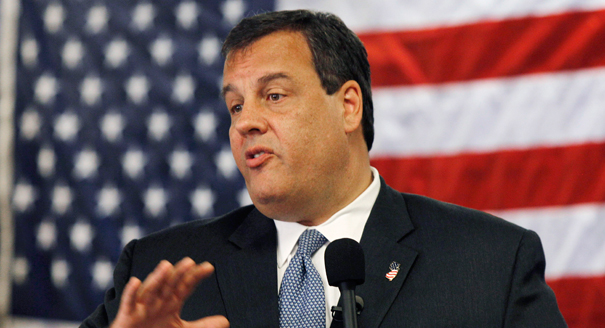States are climate battlegrounds
The nation’s premier state-led climate programs are under attack by a growing coalition of industry, tea party and conservative activists.
Opponents to limits on greenhouse gas emissions see the fights in California and New Jersey as the next step in the fight over global warming policy after the demise of federal cap-and-trade legislation on Capitol Hill.
“This is definitely a new battlefield worth reconsidering in light of threat No. 1 being shelved,” said Clint Woods, energy, environment and agricultural director at the American Legislative Exchange Council, a free market advocacy group.
In California, Texas oil giants Valero and Tesoro are spearheading a November ballot initiative to derail the Golden State’s landmark 2006 law capping its greenhouse gas emissions.
In New Jersey, conservatives are leaning on Republican Gov. Chris Christie to drop out of a 10-state regional cap-and-trade compact and show his true political stripes as he raises his national profile with an endorsement tour this fall.
Similar efforts could follow in other states, depending on how November gubernatorial races shake out.
California’s global warming law, which forces emissions across much of the economy to fall to 1990 levels by 2020, is the nation’s strongest and most sweeping policy to tackle global warming, absent federal policy. That, and the symbolism of reversing climate policy in a major liberal state, is why both sides of the Proposition 23 debate acknowledge the upcoming vote has larger implications.
“They fully intend to make California strike three after Copenhagen and Capitol Hill,” said Steven Maviglio, a spokesman for the No on 23 campaign.
Proposition 23 would block the state’s carbon dioxide limits until the unemployment rate drops to 5.5 percent or lower for four consecutive quarters. Unemployment currently is hovering at 12 percent and sponsors envision effectively killing the law, considering the rate has dropped below 5.5 percent for only three quarters since 1980.
Critics of California’s climate law spent about $4 million to get their measure on the ballot, and while public polls earlier this summer show Proposition 23 losing by about a dozen points, both sides say their internal polling has the race much closer. Turnout is expected to be high, as the climate question is one of 10 initiatives before voters this fall alongside the legalization of marijuana and competitive gubernatorial and U.S. Senate races.
“It’d be a huge signal that if this doesn’t fly in California, it really doesn’t fly anywhere,” said Phil Kerpen, director of policy at Americans for Prosperity, a conservative group pushing to kill state climate laws across the country.
Supporters of the law are using talking points similar to the ones plied by environmental activists in Washington: The state law will help reduce consumption of foreign oil and keep the state’s clean energy industries ahead of foreign competition. They’ve raised $8 million so far and enlisted former Secretary of State George Shultz — a Republican who served under Presidents Ronald Reagan and Richard Nixon — to oppose the ballot initiative.
“AB 32 can be administered sensibly, so it’s not highly disruptive,” Shultz told POLITICO. “You’ve got to be able to think long term about our national security, about our economy and about our climate. This isn’t about tomorrow. This is about thinking ahead.
It’s like Nancy Reagan’s drug awareness campaign, Shultz added. “Just say no.”
Beyond California, climate policy opponents have their sights trained on the Northeast and mid-Atlantic states, where electric utilities must curb their emissions under the eight-year-old Regional Greenhouse Gas Initiative.
Americans for Prosperity organized a protest of hundreds last week outside RGGI’s New York headquarters, including Nan Hayworth, a Republican challenging Rep. John Hall (D-N.Y.).
